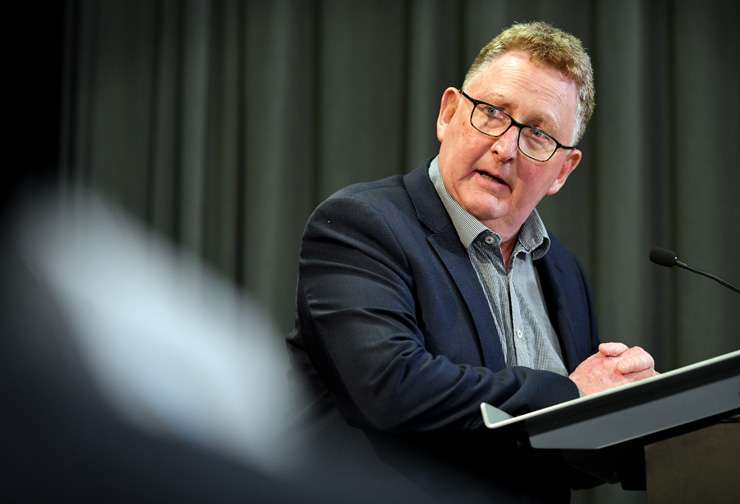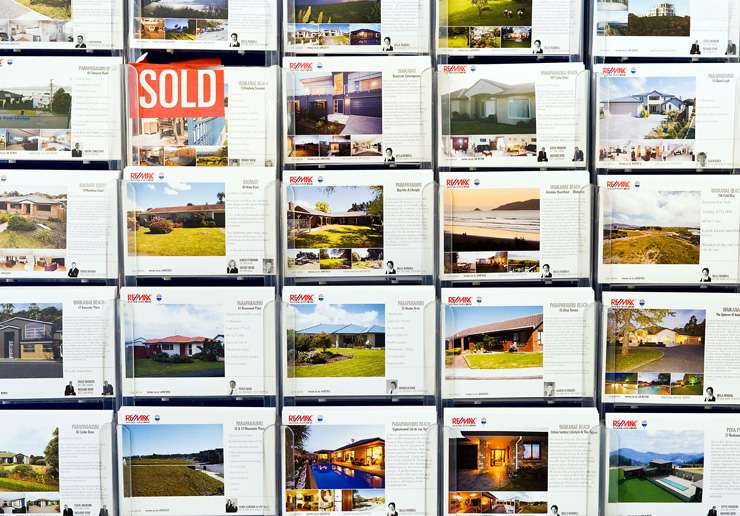New Zealand is undergoing the biggest spike in interest rates the country has seen for 25 years, says Kelvin Davidson from CoreLogic.
That means pain is coming for many people who have taken on large home loans, with “a huge wave of refinancing” due to get underway, says the insights and analytics company’s chief economist.
Around half the country’s mortgages are fixed and are due to refinance over the next 12 months.
Mortgage brokers spoken to by OneRoof report the pain is already happening and that some of the FOMO (Fear of Missing Out) buying seen over the last couple of years could come back to bite some people.
Start your property search
While brokers say most people should be able to cope with the higher rates, given banks assess serviceability at higher rates anyway, Stephen Robertson, from My Money, says gutted clients told him yesterday they were pulling the plug on their home.
These were two friends who had scrimped and saved to afford a first home together in Auckland who have decided to sell because they can’t afford the higher rates.
With the rising cost of living and discretionary spending so tight, another broker, Cameron Marcroft from Loan Market, says people may have to make some tough life choices over the next couple of years, such as delaying having a family.

CoreLogic chief economist Kelvin Davidson: “We're more sensitive to interest rate changes, because house prices are higher, debts are higher.” Photo / Peter Meecham
And Sanjeev Jangra, also from Loan Market, says investors could be selling up some of their properties with interest rates across a portfolio adding up to tens of thousands of extra dollars.
Davidson says part of the problem is house price rises over the years have meant people have taken on huge amounts of debt.
He analysed two-year fixed rates going back to 1998 when they were 9.8 per cent.
While that is considerably higher than the current rates of around 5.5 per cent (using an industry average ‘standard’ loan rate), and the projected rise to around 6.5 per cent next year, house price jumps mean debt is considerably higher so interest rate rises hurt more.
“Obviously, any new borrowers over the coming months will be facing much higher interest rates than before, too.
“We don't have the affordability numbers back to 1998 unfortunately but in early 2004 the house price income ratio was five – now it is nine.
“That’s why we're more sensitive to interest rate changes, because house prices are higher, debts are higher.”
Back in 1998, when the loan to income ratio was lower, people could stomach the higher rate a bit more easily, Davidson says.
Many people who bought in the last couple of years fixed their mortgage when the rates were at record lows after Covid arrived in New Zealand, but with rollovers due they will be repaying thousands upon thousands of dollars more.
Somebody who bought a $1m home in June last year, for example, on a standard two-year fixed term rate of 3.5 per cent for 30 years were paying $43,000 a year, but if they fix again next year at a rate potentially of 6.5 per cent they would be paying $60,000 – an extra $17,000, Davidson says.
There will be people who are on different rate terms or who have managed their mortgage well but there will be others who are in for a shock.
“There was a reasonably sharp increase in interest rates just prior to the Global Financial Crisis (in 2008) but this will be bigger than that – this is the biggest adjustment that people will have to get used to that we’ve seen in 25 years.”
Recent borrowers are more exposed but anyone with a big mortgage will potentially hurt, he says, and for some there is also a psychological element at play as some people may not have fully comprehended interest rates trending down can also go back up.
“There’s a whole generation of borrowers who have never seen interest rates go up so it’s not only the dollars you’ve got to pay but also the mindset shift – ‘what does this mean for everything else in my life’?
“If you now have to direct a lot more money towards your mortgage – we’re talking thousands of dollars here – you can’t spend up on other things, and other things are going up in price as well.
“Even without the mortgage rate interest change there’s a huge squeeze on people’s incomes through higher food, petrol, everything else.”
There could well be mortgagee sales further down the track, and some people will choose to sell and get a cheaper house, or move to a cheaper location.
But there is also light at the end of the tunnel, Davidson says, with the Reserve Bank talking about interest rates coming back down once inflation is under control, although that’s unlikely before 2024.

Reserve Bank Governor Adrian Orr in May announcing the bank’s forecast for interest rates. Photo / Getty Images
Davidson and mortgage brokers say people tend to prioritise paying the mortgage over other spending, and because banks assess serviceability on a higher interest rate they should theoretically be able to manage.
But Jangra says once first home buyers have secured a home loan they often go out and borrow further to pay for furniture, which can add a large amount of extra debt.
They usually use hire purchase facilities and dig a hole for themselves: “They are basically borrowing another $15,000 to $20,000 on average to furnish the house, and there are some crazy people who will buy a new car as well.”
But he also says people will try to save their house first and will sell the car or get rid of the hire purchases.
Some investors are going to probably have to sell properties, however.
Jangra says a client’s portfolio of around $2.5m came up for renewal recently.
“This year the cost has gone up by $55,000. If the interest rate next year is at six per cent then they will be looking at a further $38,000 increase, but if the interest rate goes up to seven per cent then they will be looking at another $63,000 on top of that.”
With investors now having to pay tax on their investment income, there is not much profit left, he says.
Robertson says a lot of people jumped on the bandwagon with the fear of missing out but didn’t think any further.
“One of the things we say to people is where are you going to be in five years’ time and a lot of them haven’t thought that far ahead.”

Properties for sale in Paraparaumu in 2009, at the height of the GFC, when homeowners were under pressure. Photo / Getty Images
He worries because, for example, people who make a decision to sell up who used their KiwiSaver for the deposit won’t be able to do that again.
Robertson sends some clients to a money coach because interest rates are only part of the problem.
“If you don’t work with the client and really understand the underlying spending patterns and behaviour it’s going to put people under heaps of financial stress, but there are ways and means of navigating these big jumps.”
Marcroft agrees that most people can survive interest rate hikes if they change their mentality around spending.
“If people adapt to the change they will be fine. If people don’t adapt to the change then they are going to struggle on the mortgage repayments.”
One option for people coming up to their rollover period is to look at fixing for a longer term, such as a three-year rate in the low five percents.
“If you still had a few more months to go on your two-year rate at 2.something I would be breaking that now and looking to refix for a longer term, just to make sure you get a better rate than you would in say two or three months.”









































































